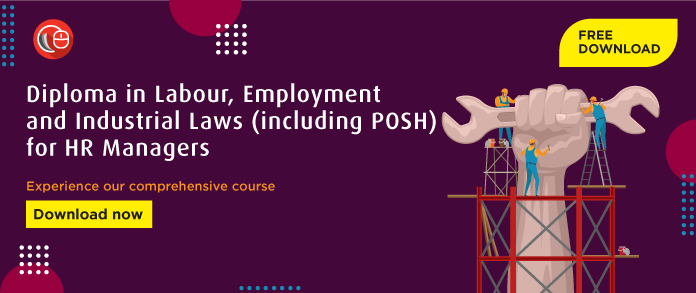This article has been written by Safiya Zahid Shaikh, pursuing Diploma in Intellectual Property, Media and Entertainment Laws ( NOV-02-2022 ), and has been edited by Oishika Banerji (Team Lawsikho).
This article has been published by Sneha Mahawar.
Table of Contents
Introduction
The purpose behind intellectual property rights (IPR) is to award the artist, creator, or inventor with a security that will help them exercise their creation for monetary purposes for a limited period of time on the one hand and, on the other, restrict others from exploiting such rights. When it comes to the music industry, IPR has a primary role to play. In today’s age, when copying and remixing have become usual activities, safeguarding the statutory rights of individuals in the music industry has received attention. It is necessary to note that any work in relation to the music industry cannot be copied in an unauthorised manner. Similarly, when it comes to the broadcasting and distribution of songs, the same also needs to be carried out with the due permission of their owner. This necessity is required to facilitate the revenue it carries with it. This article is dedicated to understanding the protection offered by IPR laws and the nuances in the music industry.
Who owns a song
Making a song is not a one-person job; it involves different steps such as songwriting, arranging, tracking, editing, mixing, and mastering, and different people have been playing these roles. So the major question is who is the legal owner of the intellectual property of a song? In a judgement of M/S Indian Record Manufacturing vs. Agni Music Sdn Bhd (2010) by the Honourable Madras High Court, it was held that the author of the musical work is a music composer, but the producer is the owner of the work unless he (the producer) who hired the composer gives up his rights in favour of the composer.
Copyright in music
Copyright is a form of intellectual property where a copyright owner has the right to protect his work (artistic, dramatic, literary, cinematograph films, sound recordings, photographs, posthumous publications, anonymous and pseudonymous publications, works of government, works of international organisations, and software) from getting copied. Having copyright over a song or music prevents others from reproducing the work. It grants performance rights only to the copyright owner. In India and countries like the UK, copyright is granted as soon as the artistic work comes into existence, provided it is captured in a tangible form, unlike in the US, where copyright registration is mandatory. Copyright for literary and musical works lasts for the owner’s lifetime plus 60 years after the death of the owner, and if the work includes the contribution of more than one person, the term is 60 years from the death of the last author/artist.
In India, copyright laws are governed by the Copyright Act of 1957. Music contains different elements and is the contribution of multiple people and their intellects. There are different stages in the formation of a song, which include the lyrics being written by a lyricist, the composer adding music to it, and, after that, a singer singing that song. Now this song is recorded in the studio by the singer, and the producer of the song records it. So it can be concluded that it is the combined effort of multiple people.
Provisions in copyright laws for music
Music is not considered a whole; under copyright laws, a song is divided into various parts, and the owner of that part can claim their rights only to that part of the song. Section 2(d)(i) of the Act states that in relation to literary and dramatic works, the person who writes these works is called the author of the work; similarly, in songs, the lyricist is the author of the work, so that the lyricist can claim his copyright over the lyrics of the songs as an author.
Section 2(d)(ii) of the Act states that in relation to musical works, the composer would be considered the author of the work. Further, Section 2(p) describes “musical work” as a work consisting of music and includes any graphical notation of such work but does not include any words or any action intended to be sung, spoken, or performed with the music. A composer is a person who adds music to the lyrics of a song, and therefore he has the right to claim copyright over the music of the song.
Section 2 (qq) describes “performer” as an actor, singer, musician, dancer, acrobat, juggler, conjurer, snake charmer, a person delivering a lecture, or any other person who makes a performance. Thus, under this Section, a singer can claim his copyright over the work for which he made contributions.
A producer is described under Section 2(uu) of the Copyright Act, 1957, in relation to a cinematograph film or sound recording. A producer is a person who takes the initiative and responsibility for making the work. As the music producer is the one who undertakes the recording and broadcasting responsibilities along with various creative/ technical leadership roles, he is the owner of the recording of the song.
Exclusive rights granted under the Copyright Act, 1957
To protect the rights of the author, various provisions are laid down that provide various rights to the author, and these rights are mentioned under Section 14 of the Copyrights Act, 1957, and are known as exclusive rights. There are three different types of exclusive rights, namely, economic rights, moral rights, and neighbouring rights.
Economic rights
Copyright is important to protect the value of an author or artist, and their contribution is the reason for the growth and development in many fields. To motivate these artists to make further contributions in the field, it is of prime importance that they are sufficiently compensated for their work. Just appreciation of the work is not enough; the monetary interest of the artist must be safeguarded, and it works as motivation for them. Economic rights are further divided into six more rights.
Right to reproduction
This is considered one of the fundamental rights of the author, as it allows the author to reproduce his work and preserve it in any form or medium. Only the author has this right, and no one else holds this right; therefore, if some other person is using the work, they are required to get permission from the author.
Right to distribution
The right to distribution is the right under which the owner of the work can make his work available for sale, rent, lease, or lending to the public. This helps the author prevent the distribution of unauthorised work. It also includes the concept of the first sale doctrine according to which once a person has purchased a copy of the copyrighted work from the copyright owner, he gains the right to sell, display, or dispose of that particular copy.
Right of adaptation
According to Section 2(a) of the Copyright Act, 1957, adaptation in a musical work signifies any arrangement or transcription of the work. It is the exclusive right of the copyright owner to make adaptations of their work or allow others to adapt or modify their work.
Right of broadcasting
The right of broadcasting is the right of the copyright owner to broadcast his work that has already been published. This right can also be termed the right to communicate the work.
Rental rights
Rental rights are the right to rent a copy of the sound recording or any other work that is recognised under copyright laws. The producer of the music or a song has the right to approve or disapprove the production, sale and distribution of sound recording
Right of public performance
Section 38 of the Copyright Act, 1957, recognises the right of the performer, thereby introducing the concept of ‘performer rights’. Performer’s rights can be considered as a kind of agreement where the performer obtains the permission of the original owner of the copyrighted work to use music in a live music event, broadcast or cable television or radio etc. In return, the latter is required to pay an amount to the composer of the music. Performance in ‘public’ means performance in a public setting, and the audience is not limited to only relatives or close acquaintances.
Moral rights
Moral rights do not play any role in providing any monetary benefits to the authors. They would rather safeguard the honour and reputation of the author and his work. Section 57 of the Copyright Act of 1957 deals with moral rights. These rights help in avoiding any kind of modification or alteration of the artist’s or author’s work. Even if the owner of the copyright has transferred its copyrighted work to others, the moral right stays with the original creator only. If someone is using the work of the artist in a way that harms the artist’s reputation, the artist may file a case for infringement of moral rights. Previously, moral rights were available only for literary work, but in the case of Mannu Bhandari vs. Kala Vikas Pictures Pvt. Ltd. and Ors. (1986), the Delhi High Court held that moral rights are available for visual and audio work as well.
Penalties for infringement in case of music
One must understand the meaning of the term ‘infringement’ with regards to copyright. Copyright infringement happens for the following reasons:
- The copyrighted work belongs to the original author and is an original creation as well.
- The copyright infringement work has to be actually copied from the author’s work.
It is ideal to note that the minimum punishment for copyright infringement of copyright is imprisonment for six months with the minimum fine of Rs. 50,000/-. Further, in cases involving a second and subsequent conviction, the minimum punishment is imprisonment for one year with a fine of Rs. 1 lakh.
Trademark in music
In recent times, there has been an increase in awareness of intellectual property rights, and the owners of the work are able to monetize their work in the most effective way. Getting a trademark registration for a song title or in the name of a musician is a common thing nowadays. In India, the first ever song to get a trademark registration was “Why this Kolaveri Di” in 2011 which was a massive overnight success. It became the most searched video in India and an internet phenomenon across Asia. Sony Music Entertainment India recorded this song and filed for a trademark. This registration gave Sony Entertainment the ability to monetise the song via compact disc, SD card, and cassette.
One of the most well-known and renowned names in the music industry is Taylor Swift. Not only is she a great singer, but she also has canny business acumen. Ms. Swift owns over 200 U.S. trademark registrations, which allowed her to preserve her music and the reputation attached to it, which allowed her to take control over her image and career, thereby securing herself as one of the top recording artists. She has registered her name, initials, name of her tour, her albums, name of the fan club (Swifties) and song lyrics like “the old Taylor can’t come to the phone right now” “look what you made me do” “and I’ll write your name” etc.
While there are many artists in the West, such as Beyonce, Adele, and many more, who have registered their names as trademarks, this trend of trademark registration by singers for their names is not very common in India. In the case of D.M. Entertainment vs. Baby Gift House and Ors. (2018), the Delhi High Court recognised the rights and reputation that a singer holds. In this case, the Court restrained the defendant, who had a registered domain name ‘dalermehndi.net’ which was deceptively similar to the registered trademark ‘DALER MEHNDI’.
Penalties for trademark infringement
Trademark infringement occurs when a person uses a trademark that is the same or similar to a registered trademark without the authorisation of the original owner for the same or similar goods/services. Trademark infringement, being a cognizable offence, has the following remedies:
- Temporary injunction;
- Permanent injunction;
- Damages;
- Account of profits (damages equivalent to the profits earned from the infringement);
- Destruction of all those goods bearing the unauthorised trademark; and
- Cost involved in the legal proceedings.
The criminal remedies that are available for trademark infringement are:
- Imprisonment for a period not less than six months which may extend to three years as well; and
- A fine of a sum not less than ₹50,000, which may extend to ₹2 lakh.
Conclusion
The scope of protecting the rights associated with the music and entertainment industries is at a very early stage in India compared to a developed country like the US. The big recording labels are very diligent in protecting their rights, while the independent artist or one who has just begun their career is not aware of their rights and tends to be gullible by these recording labels; therefore, it becomes crucial for the artist to know their rights and possible remedies if those rights are infringed.
References
- https://www.lexology.com/library/detail.aspx?g=6f6ac53e-add0-4686-9946-452120704054#:~:text=A%20music%20composer%20is%20the,in%20favour%20of%20the%20Composer.
- https://www.legalserviceindia.com/legal/article-3685-copyright-as-an-economic-source.html#:~:text=The%20right%20of%20distribution%20amounts,after%20the%20right%20of%20reproduction.
- https://www.mekiplaw.com/taylor-swift-trademarks-explained/
- https://talwaradvocates.com/who-owns-a-song/
- https://cleartax.in/s/copyright-song-india
Students of Lawsikho courses regularly produce writing assignments and work on practical exercises as a part of their coursework and develop themselves in real-life practical skills.
LawSikho has created a telegram group for exchanging legal knowledge, referrals, and various opportunities. You can click on this link and join:
Follow us on Instagram and subscribe to our YouTube channel for more amazing legal content.
 Serato DJ Crack 2025Serato DJ PRO Crack
Serato DJ Crack 2025Serato DJ PRO Crack












 Allow notifications
Allow notifications


